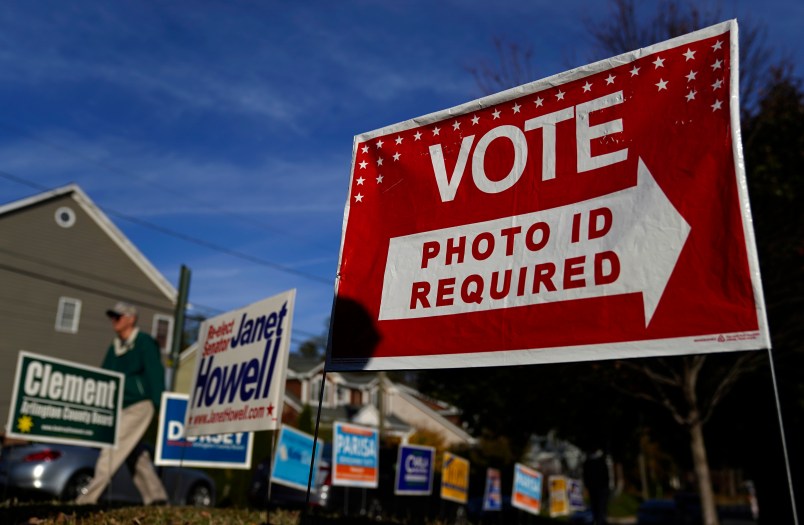In 2016, Virginia was the only state from the former Confederacy to vote for Hillary Clinton.
Since then, its elections have attracted nationwide attention as a rare marriage of DC-adjacent Democrats in the north, and Trump-friendly country down south. Political observers use trends in the state to predict trends across the country – this time, for 2020.
On Tuesday, all 140 of its state General Assembly seats are up for reelection.
Currently, Republicans hold slight majorities in both chambers: 20 to 19 in the Senate and 51 to 48 in the House of Delegates. Both bodies have a vacancy apiece.
The election is happening in an off-year, with no statewide contests on the ballot. That’s good news for Virginia Democrats, who watched their governor, Ralph Northam, along with Lt. Gov. Justin Fairfax and Attorney General Mark Herring, become engulfed in scandals involving blackface or sexual assault allegations earlier this year. All three weathered the storm, but have been laying relatively low.
Now, Democrats will need to juice the turnout, a perpetual problem for the party, especially in a non-presidential year. The race is inevitably going to be seen as a bellwether for 2020, so Democrats need to show that they’ve maintained their energy from the midterms after another exhausting year under the Trump administration.
Republicans, on the other hand, need to prove that they can withstand rapidly shifting dynamics in suburban districts, the kind that delivered the blue wave in 2018.
The stakes are high for both parties. But for Democrats especially, since they already control the governor’s mansion, the prospect must be tantalizing. Should they seize control of the legislature for the first time in 25 years, many political dreams could become a reality: minimum wage hikes, LGBTQ protection legislation, gun control.
And perhaps most importantly? Whoever wins the statehouse wins the right to redraw congressional districts after the 2020 census.
Maps have already formed the contours of this race, when the old congressional districts, shaped by Republicans, were struck down due to racial gerrymandering. The Supreme Court eventually supported that lower court decision this June. The court-ordered maps restored some balance to the districts, giving Democrats an edge in a handful of seats.
The significance of the race has not been lost on either party, both of which have poured big money into the campaigns. A whopping 16 candidates have collected more than $1 million each.
But, like all elections, in the end, it all comes down to turnout. If any Virginians doubt the importance of their vote Tuesday, they need only look back two years in the rearview mirror, when party control of the House of Delegates was decided by a slip of paper plucked from a bowl.



